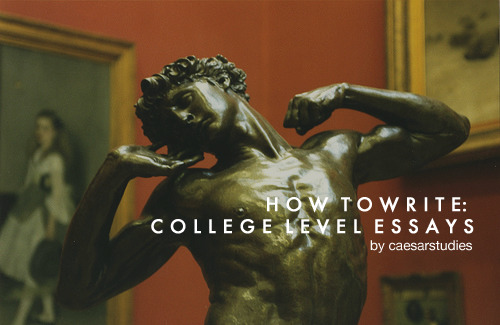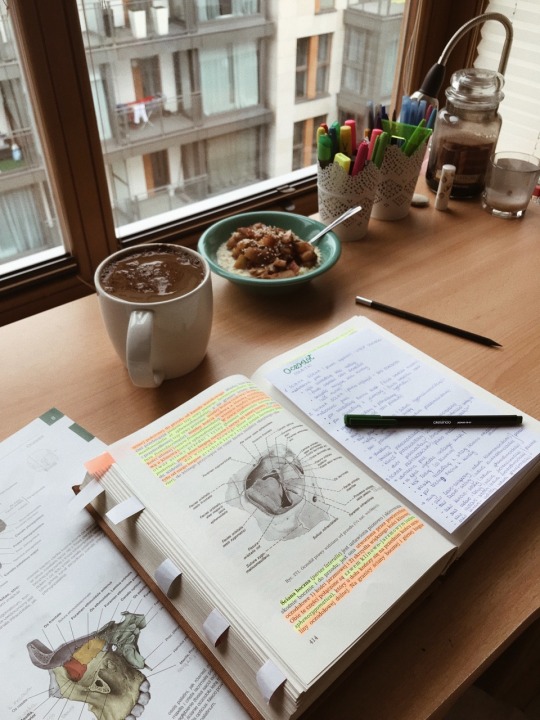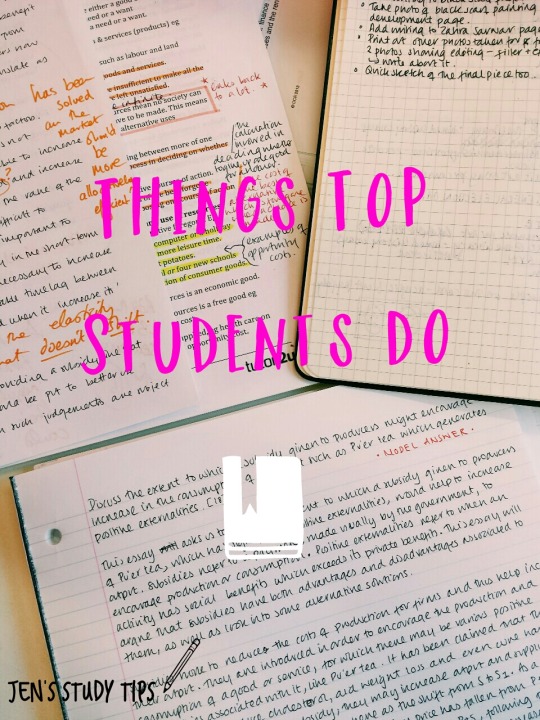Photo


Aug. 4, 2019
I am a firm believer that if you’re going to be studying for 11 hours a day (yes, that’s really what my Forest app said), you need a workspace that makes you feel good.
This photo was actually taken a few days ago & I have since repotted Sookie (the lil plant baby) into a bigger plant so she has room to grow :)
2K notes
·
View notes
Photo

writing an essay in college is very different from writing an essay in high school. personally, i write more research/history papers than literary essays (the liberal arts life and curse), so this is going to be a post on how a general research-y essay that has a thesis and arguments.
intro
don’t open with a quote and don’t be overly broad.
avoid generalizations
your intro should address the topic of your essay (ex. the significance of gardens in renaissance society), and then narrow down to what you want to talk about in regards to your topic (ex. the political influence of the Medici gardens during the renaissance)
thesis! it should include the argument you want to make about the narrowed down topic, and three (or however many your class requires) reasons to support it. I like to think of it as W = X + Y + Z.
your thesis explains who, what and why in a concise manner.
body
topic sentences should not be a word for word copy of your thesis.
the order of arguments in your thesis is the order of your paragraphs
depending on the length of your essay, there should be at least two justifications to your argument.
so, just as the intro has a formula, X = A + B, and so forth.
A and B should be backed up with some sources/quotes. don’t forget that if you are quoting from class notes to put either the prof’s last name, or (class notes)
be sure to have clear and concise arguments, don’t be flowery
USE WORDS THAT ARE ACCURATE. thesaurus is great but if you use a word that sounds cool but doesn’t capture the meaning you want to convey then don’t use it, because it may just change the meaning of your argument
quote whatever isn’t yours. it is completely fine if 90% of your sentences are quotes. its weird to get used to, but don’t worry about it.
conclusion
the worst part in my opinion.
synthesize don’t summarize. show how your arguments relate back to the thesis.
try not to copy paste your thesis into the conclusion, word it so that the readers understands that through XYZ, you were able to conclude and support argument W (referring back to the thesis formula)
do not add any new information, do not add quotes.
your final sentence should tie up the essay in a pretty bow, but try to avoid clichés
protips
when writing the body paragraphs, your ‘weakest’ paragraph should be in the middle, strongest as your last, and the second best as your first.
if you’re stumped on the intro, skip it. write out the body first, then the intro and you’ll be able to concisely word your thesis
think of your essay as an infomercial. your intro is the loud and clear HERES MY PRODUCT, the body is blasting information on why the product is so cool, and the conclusion is the final push for the viewer to buy that product. make your teacher want to agree with your thesis!
use a mix of paraphrase and quotes!
don’t forget your works cited lmao (the MLA Handbook is a gr8 tool, also OWL Purdue)
prime time for essay writing is in the morning or at night, but make sure you edit it meticulously
EDIT ON PAPER NOT ON YOUR SCREEN
stay humble, study hard
20K notes
·
View notes
Photo


18th may, 2019
finally finished translating and re-writing descriptive grammar notes!
4K notes
·
View notes
Photo

February 14, 2017. Some tea, reading and writing. Study hard lovers!
14K notes
·
View notes
Text
buying a second hand book & being able to see underlined quotes from the previous owner is so cool. you found that line life changing? moving? earth shattering? … being able to see what has caught someone else’s eye when you may not even have noticed it is truly something
35K notes
·
View notes
Text

I’m on a winter break and I have nothing to post so here’s an old photo from the beginning of this academic year
3K notes
·
View notes
Photo

Old Florida Bookshop | Fort Lauderdale, Florida
122 notes
·
View notes
Photo
Great advice, 10/10 would recommend. ;)

Things Top Students Do
1. They don’t always do all of their homework.
In college, homework assignments generally make up 5-20% of your grade, but can be the biggest time-suck for most students. Yes, working problems is one of the best ways to turn new concepts into working knowledge, but a large majority of those problems that take you hours and hours to work through, you’ll never see on an exam.
2. They never “read through” the textbook.
Per time spent, reading the textbook is one of the least effective methods for learning new material. Top students use the examples and practice problems, but otherwise use Google, lecture notes, and old exams for study materials.
3. They Google EVERYTHING.
It’s like an automatic reaction. New concept = go to Google for a quick explanation. Don’t think just because your professor gives you a textbook and some examples on the blackboard that you’re limited to that information. You have a massive free search engine at your fingertips, so make use of it.
4. They test themselves frequently.
Testing yourself strengthens your brain’s connections to new material, and gives you immediate and clear feedback on whether you know something or not. Bottom line, repeated self-testing significantly improves long-term retention of new material.
5. They study in short bursts, not long marathons.
Studying in short bursts tends to help you focus intensely because you know there is at least a short break coming.
This also fits in nicely with our Ultradian Rhythm, the natural activity/rest cycle of our bodies, which makes studying continuously for multiple hours on end counterproductive.
6. They reverse-engineer solved problems.
It’s one thing to follow and memorize a set of steps to solve a calculus problem. It’s an entirely different thing to understand what a derivative is, be able to take derivates of complex functions, know when to use the chain rule vs. the product rule, etc. The problem with simply following the steps the professor provided, or the textbook outlines, is that you’re only achieving a surface-level knowledge of the problem. Top students, instead,take solved problems and work backwards, from solution to question, asking “why.”
Why did this get this value? Why did they simplify this expression? Why did they use that type of derivative rule?
By following this process, you begin to understand the interconnections of the concept, and how to directly apply that to a problem. This “working knowledge” of a concept is key to performing well on exams, especially on problems that you haven’t seen before.
7. They don’t own a highlighter.
Highlighting anything = unengaged reading. If you want to note something that stands out, underline and write a corresponding note to go along with it. Or better yet, write yourself a note summarizing the item in your own words.
8. They sleep–a lot.
The daily routines of top performers, in any field, are characterized by periods of intense work (4-6 hours per day) followed by significant quantities of high-quality sleep (9 hours per night). You see this trend in top violin prodigies and chess champions, as well as elite athletes. The idea is to alternate periods of intense work with rest, so that you create tons of new connections in your nervous system, and then allow adequate time to assimilate those gains.
9. They engage themselves by asking questions.
What happens if I tell you, “Thomas Jefferson almost single-handedly drafted the Delcaration of Independence in 1776.”?
You might say “Hmm.. that’s interesting”, try to remember it for later, maybe even write down a note or two.
But what if I ask you, “Who was Thomas Jefferson?” What changes?
You start searching your memory, sifting through images of old guys, founding fathers, thinking about the Declaration of Independence. You come up with your own narrative, and then realize that you have gaps.
When was he around again? And why was he so important?
You’ll probably find yourself going to Google to fill in the gaps. Through that process your learning will be much more deeply seated in your brain than anything your history teacher ever told you about him. That’s the power of asking questions.
10. They make the best out of lecture.
Yes, your professor sucks. Yes, lectures are boring. Yes, it’s either too fast so you can’t keep up and miss all the important stuff, or it’s way too slow and you start zoning out because you already understand everything.
The best students look at this this way: I’m going to be there no matter what, so what’s the best use of my time while I’m in the classroom? Ask questions, bring the textbook and look stuff up, focus on the important practice problems to copy down in your notes, try to anticipate what the professor is going to say, make note of anything they put emphasis on as a potential exam topic. All of these things make the time you have to spend in lecture more productive and engaging. And that’s less time you have to spend studying later on.
11. They over-learn.
School is hard enough, with the amount of studying and homework you have to do. And on top of all of that Facebooking you have to get done? It might seem ridiculous to suggest learning more than you have to.
What!? Are you insane!?
But this is precisely what top students do. And paradoxically, they end up spending less time trying to understand how to do homework problems, andless time studying for exams because of it. Because when you “over-learn” past what’s presented in class, you build a better framework for the subject.
Think of trying to remember some details about Abraham Lincoln’s life. You try to remember the dates of the Civil War, or what he said in the Emancipation Proclamation. You study the same facts over and over and over again… but it’s just boring, and you quickly forget. But what if you knew his whole life’s story? About how Lincoln suffered from bouts of depression, and his relationship with his wife suffered? You start to learn that the dude was human, and you start to relate to the things he did and the struggles he went through. Now you’ve constructed a story in your head. And studies show that humans learn best through stories. So yes, it’s more information, but your brain knows what to do with it now that all those random facts are linked together. More learning, but less rote memorization and struggling to remember random facts.
12. They immediately study their exam mistakes.
Most students get their exam grade back, flip through to see if the professor made any mistakes they can argue about, and then promptly shove it into their notebook, never to be seen again until the mad scramble at the end of the semester to study for the final.
Instead, top students ignore what they got right, and use their mistakes as an indicator of what to improve on.
13. They’re busy with work and side projects.
Yes, to do well in a course, you need to focus and put in the hours. But like many geniuses throughout history have shown, involvement in a diverse set of subjects, activities, and skill sets keeps you active, and provides you with a rich and diverse set of mental models to pull from.
Also, as they say, “If you need to get something done, give it to the busy person.” If you stay active in multiple areas, you don’t have time to procrastinate, and are forced to be efficient with your study time. This generally translates into quicker learning and better performance throughout the semester.
14. They use lecture as a detective mission.
Though completely unaware of this fact, your professor has tells. Yes, like in poker. Tells during lecture will hint at particular types of concepts and problems that will be emphasized on the midterm or final exam. The best students pay attention to topics professors spend a seemingly inordinate amount of time on and make note. Chances are you’ll see something related on the final.
15. They don’t wait for motivation to strike.
Motivation comes and goes, but studying for a degree requires persistence and consistency. Just like Olympic athletes train even on their worst days, the best students figure out how to get their coursework done when it’s the last thing they want to do.
16. They practice under test conditions. The old adage “practice makes perfect” isn’t totally true. Deliberate practice under the right conditions, with the correct mindset, is more like it. Instead of reading through all of the lecture notes and redoing old homework problems, top students make themselves practice exams, and rehearse their exam performance, under time pressure and in similar conditions (no notes, uncomfortable chair, quiet room, etc.) to what they’ll see on test day.
17. They use old exams.
Professors aren’t the most inventive folk. Along with coming up with lecture material and departmental responsibilities, they’re also primarily concerned with research. So typically midterms and final exams more or less look alike for similar courses year-to-year and even across universities. Because of this, old exams are a gold mine of opportunity for figuring out what problems you should be able to solve and study from.
18. They make their own study guides.
The best students don’t simply use the study guide the teacher provides, they create their own.
Creating the study guide is half the battle, requiring you to go through your notes, consolidate them, and organize them in a way that you understand–all valuable study activities. You’ll also be able to use your equations sheet much more effectively on the exam itself (if allowed) because you know exactly where everything is.
19. They actually write on paper.
Writing out notes on a laptop is efficient. Too efficient. Because it’s so easy to quickly type out exactly what the professor is saying, you don’t have to do the work of trying to figure out how to consolidate the information into your own shorthand. Some also believe that the act of writing helps retain more information.
20. They use the 80/20 rule.
Yes, some students who get good grades do every reading assignment, finish every practice problem, and attend every study session they can get their hands on. But these students are missing the point. There will always be an endless amount of information you could learn given the time and effort, but having the ability to discern what is worth learning will truly set you apart.
Top students identify the 20% of concepts they need to learn deeply, in order to determine 80% of their final grade. They focus intently on those few things, and simply ignore the rest. This is a formula for high performance, without hours and hours of busywork. And it translates seamlessly into the real world too.
21. They don’t complain.
Complaining simply has no place in the smart student’s repertoire. If something sucks, change it or ignore it, but don’t waste your time, energy, and mental state talking about it. Got a crappy professor? Either switch class sections or focus on teaching yourself. Horrible textbook? Find alternate resources (Google is free in case you hadn’t heard).
22. They learn by doing.
Any technical subject can only truly be internalized through use. Just like learning a new language, learning to be fluent in algebra or calculus requires active application of rules and formulas. Top students know there is a big difference between knowledge, and applied knowledge.
23. They take personal responsibility for learning the material.
The best students understand that they, and only they are truly responsible for their own education. So waiting to be spoon-fed by your professor and doing the homework assignments will never be enough. Despite your school’s best intentions, they’ll never be as committed to your academic success as you can be.
24. Following what they love
Those students you admire are passionate about what they are learning. They have the drive to develop their learning further based on their love of what they are discovering. This may not always be the case and is often unavoidable but if you follow what interests you and cultivate a curiosity of this area, your motivation to learn will thrive.
Not every student is the same and many top students don’t follow the status quo. The best way to create good habits for students is to try a variety of techniques and figure out what works for you.
25. Question your teachers Thinking outside the box is a cliche but certainly a reality for students. They question everything–especially test questions they get wrong. This attitude is important because it shows a general inquisitiveness that is essential in learning. As any parent of small children knows, questions are a way to gain knowledge. Teachers can’t be offended when a student asks a difficult question and parents should encourage this behavior.
26. They know the best way to study.
It is important to know the best way to study for yourself. Do you need pictures? Sounds? Study better in quiet or noisy environments? Figure out what works best for you so that you can make the most out of your study time.
27. They play hard.
We all know that a balanced lifestyle is the best way to stay mentally and physically healthy! Top students don’t spend all day in the library grafting (contrary to what you might think!) Rather, they take the time to put their studies aside and do something which is fun and exciting!
Source : 1 2 3 4
53K notes
·
View notes
Text


Notes, just the reg
#studying#study motivation#studyspo#studyblr#study#books#studyspiration#notes#school#book#studysthetics#study mode#college#high school#note#pen#pencil#aesthetic#lol#not#really#sorry#mine#my post
3 notes
·
View notes
Text

More notes from legal and ethics... starting microbiology today though!!
#studying#study motivation#studyspo#studyblr#study#books#studyspiration#notes#school#book#studysthetics#studies#high school#highlight#pen#pencil#staedler triplus fineliners#mine#my post#theme#aesthetic#motivation#motivator#legal#ethics
16 notes
·
View notes
Text

This is boring but I start microbiology next week woohoo!
#study#studying#studyreal#mine#studyblr#studentlife#study motivation#studyspo#books#studyspiration#notes#school#book#textbook#health#career#doctor#medical#medicine#medical school#college#life
21 notes
·
View notes
Text
Hello friends, senior year has absolutely wild and chaotic. Classes are tough, but since my final swim season is over, I’m going to try to post on this again. My goal is to post five times a week. I love this community so much.
Note: I am not the most aesthetically pleasing studyblr there is. However, I like to think that my messy notes and terrible lighting depict real-life studying better, hopefully making you more motivated to study material, not just take pretty notes and pictures (don’t get me wrong, I love aesthetic studyblrs! I still wish I had the handwriting and stationery to do it!).
4 notes
·
View notes
Photo

6.14.18 || I cant believe I’m gonna be a senior next year wtf that’s so wild
145 notes
·
View notes




